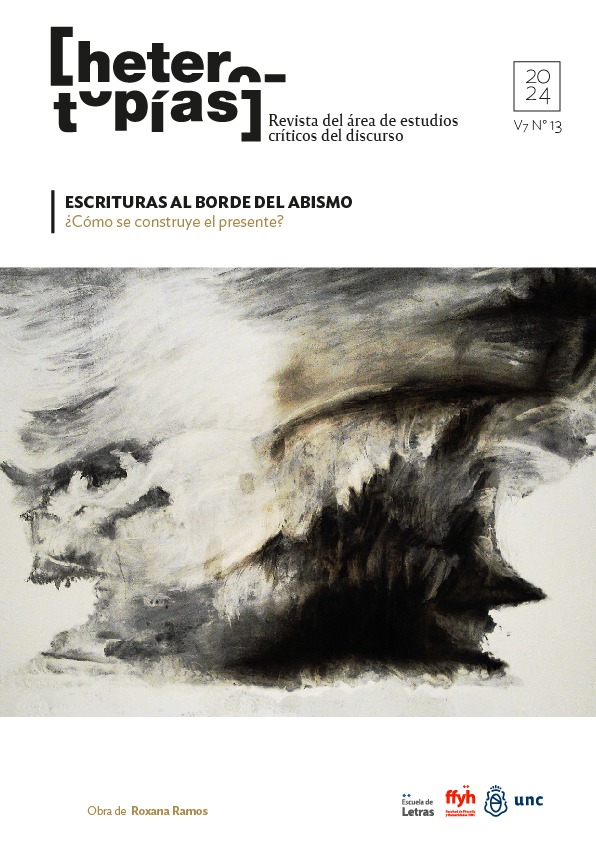Underpaid workers in global cinema: modes of precariousness in Rome (2018) and Nomadland (2020)
Main Article Content
Abstract
This article reflects on the emergence of precariousness in global cinema and on what currently allows cinema to become political in order to, in this way, consider the subjects who, due to the current conditions of neoliberalism, are relegated to the edge of the abyss. Faced with the question of whether global cinema can make affective statements about precariousness, it is proposed to investigate, from the analysis of some scenes and the forms of production of the films Roma (2018, Alfonso Cuarón) and Nomandland (2020, Chloé Zhao), the ways to present and represent issues linked to poverty, violence and the proximity of death. The relationships that arise from the work carried out by women from specific temporal and geographical perspectives allow us to enter textual proposals that, from abundant material resources, can produce an affective, aesthetic and ethical discourse on the precarious.
Downloads
Article Details

This work is licensed under a Creative Commons Attribution-NonCommercial-ShareAlike 4.0 International License.
Those authors who have publications with this journal, accept the following terms: Those authors who have publications with this journal, accept the following terms:
a. The authors will keep their copyright and guarantee to the journal the right of first publication of their work, which will be simultaneously subject to the Creative Commons Attribution - Non-Commercial - Share Alike (by-nc-sa) Attribution License; no commercial use of the original work or any derivative works is allowed, the distribution of which must be done with a license equal to the one that regulates the original work.
b. Authors may adopt other non-exclusive license agreements for the distribution of the published version of the work (e.g., deposit it in an institutional telematic archive or publish it in a monographic volume) provided that the initial publication in this journal is indicated.
c. Authors are allowed and recommended to disseminate their work through the Internet (e.g. in institutional telematic archives or on their website) before and during the submission process, which may lead to interesting exchanges and increase the number of citations of the published work. (See The effect of open access).
How to Cite
References
Agamben, G. (2007). Lo abierto. Buenos Aires: Adriana Hidalgo.
Butler, J. (2006). Vida precaria. El poder del duelo y la violencia. Buenos Aires: Paidós.
Butler, J. (2010). Marcos de guerra: las vidas lloradas. Buenos Aires: Paidós.
Choi, D. (2018). El fin de lo nuevo. Un panorama aleatorio del cine contemporáneo. Buenos Aires: Libraria.
Didi-Huberman, G. (2014). Pueblos expuestos, pueblos figurantes. Buenos Aires: Manantial.
Dlugi, C. y Gallego, R. (2019). Mujeres cámara acción. Empoderamiento y feminismo en el cine argentino. Buenos Aires: Ediciones Continente.
Domínguez, N. (2021). El revés del rostro: figuras de exterioridad en la cultura argentina. Buenos Aires: Beatriz Viterbo Editora.
Foucault, M. (2006). Seguridad, territorio, población. Buenos Aires: Fondo de Cultura Económica.
Jameson, F. (2018). La estética geopolítica. Cine y espacio en el sistema mundial. Buenos Aires: El cuenco de plata.
Kratje, J. (2021). Voces y cuerpos del servicio doméstico en el cine latinoamericano contemporáneo. Imagofagia, (15). Recuperado a partir de https://www.asaeca.org/imagofagia/index.php/imagofagia/article/view/302
Lopez de La cruz, S. y Martinez Nuñez, E. (2021) “El rol del artista en el cine independiente actual: Nomadland como ejemplo cultural del realismo capitalista” en Tsantsa. Revista de Investigaciones Artísticas Núm. 11 ISSN: 1390-8448.
Marchetti, G. (2021). Chloé Zhao and China: The Nomadland Moment. Film Quarterly. Published on April 28, https://filmquarterly.org/2021/04/28/chloe-zhao-and-china-the-nomadland-moment/
Martel, F. (2011). Cultura Mainstream. Como nacen los fenómenos de masas. Barcelona: Taurus.
Osborne, E. y Ruiz-Alfaro, S. (2020): Domestic Labor in Twenty-First Century Latin American Cinema. Nueva York: Springer International Publishing.
Pollock, G. (2015). Visión y diferencia. Feminismo, feminidad e historias del arte. Buenos Aires: Fiordo.
Rancière, J. (2013). El espectador emancipado. Buenos Aires: Manantial.
Rancière, J. (2014). El reparto de lo sensible. Estética y política. Buenos Aires: Prometeo.
Brody, R. (2018). “There’s a voice missing in Alfonso Cuarón’s Roma”. The New Yorker. 18 de diciembre. Recuperado de: https://www.newyorker.com/culture/the-front-row/theres-a-voice-missing-in-alfonso-cuarons-roma
Vázquez-Rodríguez, L. G. y Zurian, F. A. (2021): La representación cinematográfica de la mucama latinoamericana: La ciénaga (Lucrecia Martel, 2001) y Roma (Alfonso Cuarón, 2018), en Miguel Hernández Communication Journal, Vol. 13 (1), pp. 101 a 122. Universidad Miguel Hernández, UMH (Elche-Alicante). DOI:10.21134/mhjournal. V13i.1469
